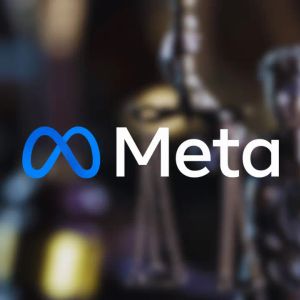Meta’s transformative use defense tips scales in its favor in AI copyright legal battle
3 min read
A federal court on Wednesday ruled that Meta Platforms Inc.’s use of millions of copyrighted books, academic papers, and comics to train its Llama artificial intelligence models falls under “fair use”. This marks a significant legal win for tech companies developing generative AI. The lawsuit, filed by a group of writers including Ta-Nehisi Coates and Richard Kadrey, accused the $1.4 trillion social media and AI giant of illicitly using a huge web content catalog without permission. These works were obtained through archives such as LibGen — a shadow library that hosts content without granting publisher rights. However, US District Judge Vince Chhabria in San Francisco sided with Meta, concluding that the authors failed to make the right legal arguments to support their claims. “This ruling does not stand for the proposition that Meta’s use of copyrighted materials to train its language models is lawful,” Chhabria clarified in his decision. “It stands only for the proposition that these plaintiffs made the wrong arguments and failed to develop a record in support of the right one.” Meta’s transformative use defense tips scales in its favor Meta argued that its AI model training was a transformative use — a key tenet of fair use under US copyright law — and that how it acquired the data was irrelevant. The court agreed that the transformative nature of the technology and the plaintiffs’ lack of compelling counterarguments tipped the scales in Meta’s favor. This decision arrives just days after another high-profile win for an AI company: Anthropic, the maker of the Claude language models, secured a favorable ruling after demonstrating that it had trained its models on legally acquired physical books . A federal judge in San Francisco said Anthropic made “fair use” of books by the writers Andrea Bartz, Charles Graeber, and Kirk Wallace Johnson to train its Claude large language model (LLM). Judge William Alsup compared the Anthropic model’s use of books to a “reader aspiring to be a writer” who uses works “not to race ahead and replicate or supplant them” but to “turn a hard corner and create something different”. Alsup added, however, that Anthropic’s copying and storage of more than 7 million pirated books in a central library infringed the authors’ copyrights and was not fair use, although the company later bought “millions” of print books as well. The judge ordered a December trial to determine how much Anthropic owes for the infringement. Alsup noted that the fact that Anthropic later bought a copy of a book it had stolen off the internet will not absolve it of liability for the theft. Still, it may affect the extent of statutory damages. US copyright law says that wilful copyright infringement can result in damages of up to $150,000 (£110,000) per work. The copyright debate has sparked growing tensions between AI companies and the creative industries, as generative AI models — which power tools like ChatGPT — rely on massive datasets to learn and produce responses. Much of that training data includes copyright-protected material, raising concerns among authors, publishers, and artists over unauthorized use. Ruling signals a turning point in AI copyright battles While the Meta case has been hailed as a victory for Big Tech, Judge Chhabria hinted at what could be more persuasive legal avenues in future cases. He noted that a stronger argument would focus on market dilution — the threat posed to authors by AI-generated content that can saturate markets with machine-created books, music, and art. “People can prompt generative AI models to produce these outputs using a tiny fraction of the time and creativity that would otherwise be required,” he warned. “This could dramatically undermine the incentive for human beings to create things the old-fashioned way.” Meta and legal counsel for the plaintiffs have not yet commented on the ruling. The decision will likely influence the many ongoing lawsuits created by creators against AI firms, as the legal system continues grappling with how copyright law applies in the era of artificial intelligence. KEY Difference Wire : the secret tool crypto projects use to get guaranteed media coverage

Source: Cryptopolitan



